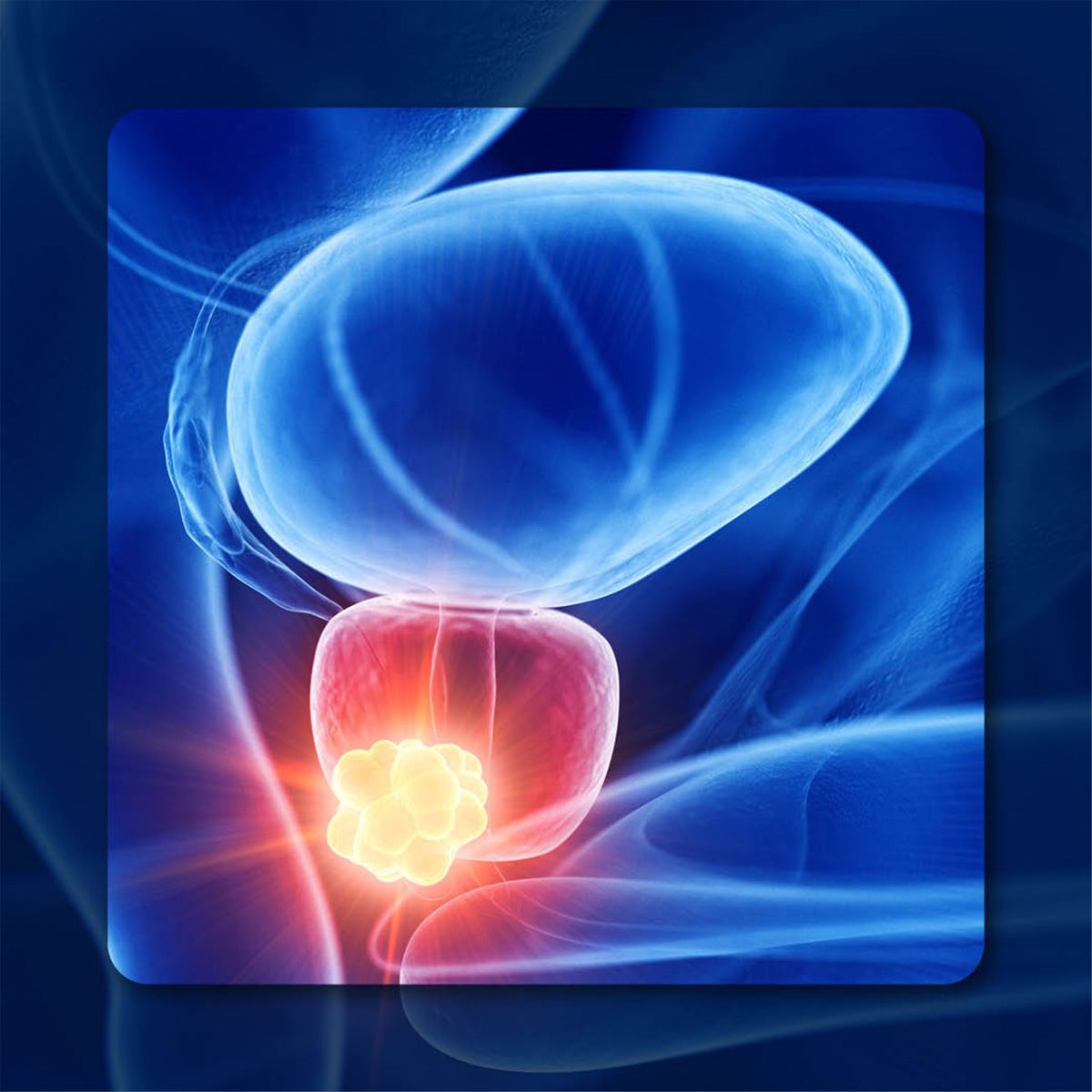Article
Daiichi Sankyo and Guardant Health Team Up for Companion Diagnostic for Trastuzumab Deruxtecan in Advanced NSCLC
Author(s):
Daiichi Sankyo Inc. is collaborating with Guardant Health Inc. to develop a companion diagnostic for fam-trastuzumab deruxtecan-nxki, which is being studied to treat patients with advanced metastatic HER2-mutated non‒small cell lung cancer.
Gilles Gallant, BPharm, PhD, FOPQ

Daiichi Sankyo Inc. is collaborating with Guardant Health Inc. to develop a companion diagnostic for fam-trastuzumab deruxtecan-nxki (Enhertu), which is being studied to treat patients with advanced metastatic HER2-mutated non‒small cell lung cancer (NSCLC).1
“Lung cancer is an area where we have more and more specific therapies so identifying patients selectively for a specific therapy becomes more and more important,” said Gilles Gallant, BPharm, PhD, FOPQ, senior vice president, global head in oncology development, oncology R&D, at Daiichi Sankyo, told OncLive. “At diagnosis, a tumor biopsy is done, but for second-line treatment, there are risks for the patient in taking a biopsy. But we have to make sure patients have the mutation. This is extremely important for the drug to work.”
A blood-based assay would be faster, simpler, and less invasive for the patient, Gallant added. “Now, we need to demonstrate that those assays are good, if not better, than taking a piece of the tumor.”
Trastuzumab deruxtecan is currently being studied as a second-line treatment for patients with HER2-mutated metastatic NSCLC after at least 1 regimen of prior anticancer therapy that must have contained a platinum-based chemotherapy drug.2
Patients in the global phase 2 DESTINY-Lung02 trial (NCT04644237) will be randomized in a 2:1 ratio to receive either the 5.4 mg/kg or 6.4 mg/kg dose of trastuzumab deruxtecan. The primary end point of the study is objective response rate (ORR), as assessed by blinded independent central review (ICR). Secondary end points include disease control rate (DCR), duration of response (DOR), progression-free survival (PFS), investigator-assessed ORR, overall survival (OS), pharmacokinetics, time to response, quality of life, and safety.
Trastuzumab deruxtecan has been approved by the FDA to treat patients with unresectable or metastatic HER2-positive breast cancer and those with locally advanced or metastatic HER2-positve gastric or gastroesophageal junction adenocarcinoma who had previously received a trastuzumab (Herceptin)-based regimen.3
Investigators presented an interim analysis from the phase 2 DESTINY-Lung01 trial (NCT03505710) at the 2020 ASCO Virtual Scientific Program. Data were presented from 42 patients with HER2-mutant unresectable and/or metastatic nonsquamous NSCLC.4
The primary end point of confirmed ORR, which was assessed by ICR, was 61.9% (95% CI, 45.6%-76.4%) with trastuzumab deruxtecan monotherapy (6.4 mg/kg). Patients who received the antibody-drug conjugate achieved a DCR of 90.5% (95% CI, 77.4%-97.3%), with a median PFS of 14.0 months (95% CI, 6.4-14.0). The median DOR and OS had not yet been reached at the time of data cutoff.
The DESTINY-Lung01 trial used data from tissue testing to confirm HER2 mutation status, Gallant said. “However, we wanted a much easier test to identify those patients. A blood test opens up an easier way to identify potential patients for this agent.”
Guardant360 CDx is an FDA-approved liquid biopsy that provides comprehensive genomic profiling results to guide treatment in all solid tumors. “It is approved for 55 genes for tumor profiling, which gives the physician a broad view of each patient to use in therapy selection,” Justin Odegaard, MD, PhD, vice president of clinical development at Guardant Health, told OncLive.
“A companion diagnostic indication for FDA is built around 2 basic things. First, is the test accurate and analytically correct?” Odegaard questioned. “And second, do patients identified by the test respond to the drug?” Odegaard further added that the goal for this specific companion diagnostic approval is to improve overall patient access to optimal therapy. “We are working to help physicians determine who is eligible to receive trastuzumab deruxtecan,” Odegaard noted.
Guardant360 CDx is also an approved companion diagnostic for osimertinib (Tagrisso) to identify patients with NSCLC who have tumors that harbor EGFR mutations.
The test is also being pursued as a companion diagnostic for other therapies to treat patients with NSCLC. Amgen and Guardant Health are collaborating to develop a test for sotorasib for patients with NSCLC who have the KRAS G12C mutation.5 The FDA is currently reviewing a new drug application for sotorasib for this indication under its Real-Time Oncology Review (RTOR) pilot program. The application has a received a priority review designation.6
Janssen Biotech and Guardant worked together to develop a companion diagnostic for amivantamab, an investigational EGFR/MET bispecific antibody that has recently received FDA approval for use in adult patients with NSCLC who harbor EGFR exon 20 insertion mutations.7 The regulatory agency gave the green light to Guardant360 CDx to determine which patients may derive benefit from amivantamab after progressing on, or after platinum-based chemotherapy.8
References
- Guardant Health announces collaboration with Daiichi Sankyo to develop Guardant360 CDx as a companion diagnostic for Enhertu in advanced metastatic non‒small cell lung cancer. News release. Guardant Health. April 27, 2021. Accessed May 25, 2021. https://bwnews.pr/3hB7HMo
- DESTINY-Lung02 phase 2 trial of Enhertu initiated in patients with HER2 mutated non‒small cell lung cancer. News release. Daiichi Sankyo. March 29, 2021. Accessed May 25, 2021. https://bit.ly/3v0gThd
- Enhertu. Prescribing information. Daiichi Sankyo; 2021. Accessed May 18, 2021. https://bit.ly/3yjW4zA
- Smit EF, Nakagawa K, Nagasaka M, et al. Trastuzumab deruxtecan (T-DXd; DS-8201) in patients with HER2-mutated metastatic non–small cell lung cancer (NSCLC): interim results of DESTINY-Lung01. J Clin Oncol. 2020;38(suppl 15):9504. doi:10.1200/JCO.2020.38.15_suppl.9504
- Guardant Health announces collaboration with Amgen to develop a global liquid biopsy companion diagnostic for AMG 510 KRAS G12C inhibitor. News release. Guardant Health. January 13, 2020. Accessed May 25, 2021. https://bit.ly/3hAAqkL
- FDA grants sotorasib priority review designation for the treatment of patients with KRAS G12C mutated locally advanced or metastatic non‒small cell lung cancer. News release. Amgen. February 16, 2021. Accessed May 25, 2021. https://bit.ly/3bCXQlv
- Guardant Health announces collaboration with Janssen to develop liquid biopsy companion diagnostic. News release. Guardant Health. July 8, 2020. Accessed May 18, 2021. https://bit.ly/33RKmOy
- Guardant360 CDx receives FDA approval as companion diagnostic for Janssen’s RYBREVANT (amivantamab-vmjw) for use in patients with advanced non-small cell lung cancer with EGFR exon 20 insertion mutations. News release. May 21, 2021. Accessed May 25, 2021. https://bit.ly/3vmj5Qw






%20u.jpg?fit=crop&auto=format)

%20(2)%201-Recovered-Recovered-Recovered-Recovered-Recovered-Recovered-Recovered-Recovered-Recovered-Recovered-Recovered-Recovered-Recovered-Recovered-Recovered-Recovered-Recovered-Recovered-Recovered.jpg?fit=crop&auto=format)
%20(2)%201-Recovered-Recovered-Recovered-Recovered-Recovered-Recovered-Recovered-Recovered-Recovered-Recovered-Recovered-Recovered-Recovered-Recovered-Recovered-Recovered-Recovered-Recovered-Recovered.jpg?fit=crop&auto=format)